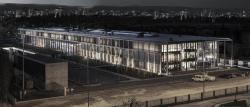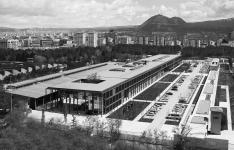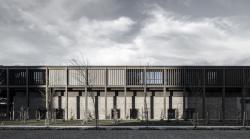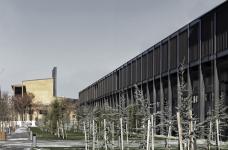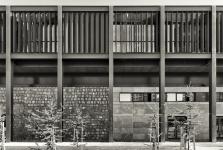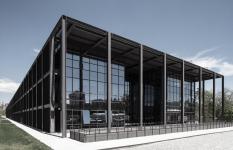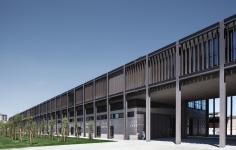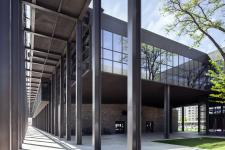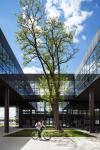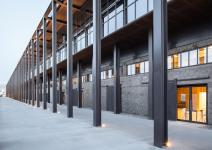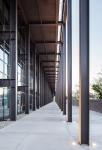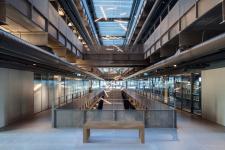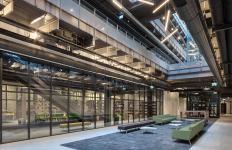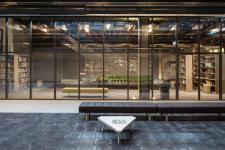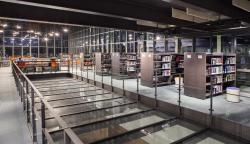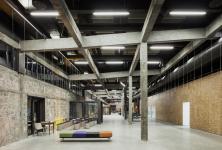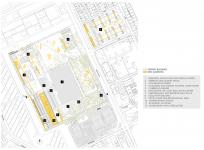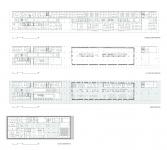Sumerbank Textile Factory, built in 1933 in Kayseri by a group of Russian architects led by Ivan Nikolaev, has been one of the most important symbols of industrialisation and modernisation move in Republican period in Turkey. After its shut-down in 1999, the industrial complex, consisting of the buildings which are unique examples of Russian Constructivism has been left abandoned inside the city until its consignation to Abdullah Gül University to be transformed into a new campus.
Upon the need of an educational/administrative building for the new campus; instead of designing a brand-new building, the existing small warehouse is suggested to be converted into a facility that will house the program while sustaining the aura of former factory. Design is driven by the approach towards the existing building which aims not to alienate it by regarding what is found as ‘untouchable’ nor to over-intervene and damage the existing character. The arcade of the existing large warehouse is considered as a generative element and the small warehouse which is a more recent addition to the complex, is transformed by removing its roof, adding a new structure that carries a canopy as well as new spaces above the existing space, forming an arcade in front mirroring the other warehouse. New buildings such as a food-court creating a recreational area in front are added in order to strenghten exterior spaces. An orangerie, standing as an interface between the city and university has been laid along the border, also acting as an urban farm to sustain the local herbs.
2012
2014
EAA - Emre Arolat Architecture

